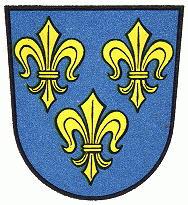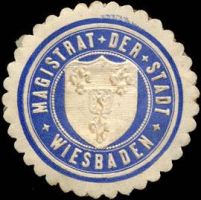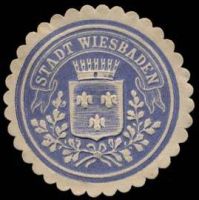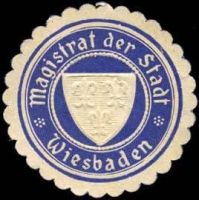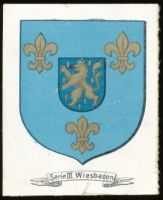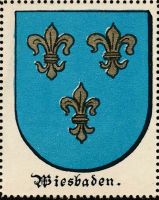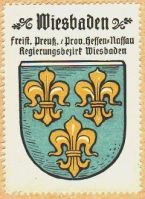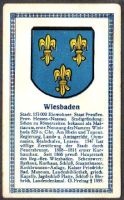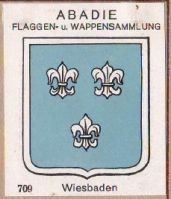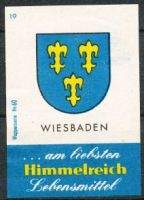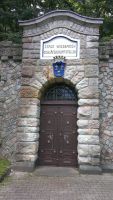Wiesbaden: Difference between revisions
Knorrepoes (talk | contribs) |
Knorrepoes (talk | contribs) |
||
| Line 28: | Line 28: | ||
<gallery widths=250px heights=200px perrow=0> | <gallery widths=250px heights=200px perrow=0> | ||
File:wiesbadenz2.jpg|alt=Wappen von Wiesbaden / Arms of Wiesbaden|Seal from around | File:wiesbadenz2.jpg|alt=Wappen von Wiesbaden / Arms of Wiesbaden|Seal from around 1900 | ||
File:wiesbadenz1.jpg|alt=Wappen von Wiesbaden / Arms of Wiesbaden|Seal from around 1910 | File:wiesbadenz1.jpg|alt=Wappen von Wiesbaden / Arms of Wiesbaden|Seal from around 1910 | ||
File:wiesbadenz3.jpg|alt=Wappen von Wiesbaden / Arms of Wiesbaden|Seal from around 1910 | File:wiesbadenz3.jpg|alt=Wappen von Wiesbaden / Arms of Wiesbaden|Seal from around 1910 | ||
Revision as of 05:25, 26 July 2022
This page is part of the German heraldry portal Deutsche Wappensammlung |
Heraldry of the World |
|
German heraldry:
|
Selected collector's items from Germany:
|
WIESBADEN
State : Hessen
Urban District (Kreisfreie Stadt) : Wiesbaden
Additions : 1926 Biebrich, Schierstein, Sonnenberg; 1928 Bierstadt, Dotzheim, Erbenheim, Frauenstein, Hessloch, Igstadt, Kloppenheim, Rambach; 1945 Amöneburg, Kastel, Kostheim; 1977 Auringen, Breckenheim, Delkenheim, Medenbach, Naurod, Nordenstadt
Boroughs (never separate municpalities) : Klarenthal
| German | In Blau drei, zwei zu eins gestellte goldene Lilien. |
| English | No blazon/translation known. Please click here to send your (heraldic !) blazon or translation |
Origin/meaning
The arms of Wiesbaden are identical to the former French Royal arms, and it has been stated that the arms were granted by Charlemagne, or that the arms were used as a symbol for Charlemagne, the alleged founder of the city. However, this is not likely, as in the time of Charlemagne there were no heraldic arms, and he never used fleur-de-lis (lilies) as his symbol.
Wiesbaden was an imperial city until 1250, when it became a possession of the Counts of Nassau. The oldest known seals date from the early 14th century and show the lion of Nassau. Around 1350 three roses were added, probably to distinguish the arms from similar arms in the County of Nassau. In the early 16th century the roses were replaced by the three lilies. Later that century the lion was removed, at first in images and on buildings. later also in the seals of the city.
In 1898 the city officially adopted the arms with the lion, based on the old seals, but these arms were already replaced in 1906 by the present, and more historically correct, arms.
The arms in the Continentale Verlags-Anstalt album, +/- 1910
The arms in an album from around 1910
The arms by Hupp in the Kaffee Hag albums +/- 1925
The arms in the Abadie albums
Contact and Support
Partners:
Your logo here ?
Contact us
© since 1995, Heraldry of the World, Ralf Hartemink 
Index of the site
Literature : Stadler, 1964-1971, 8 volumes.


